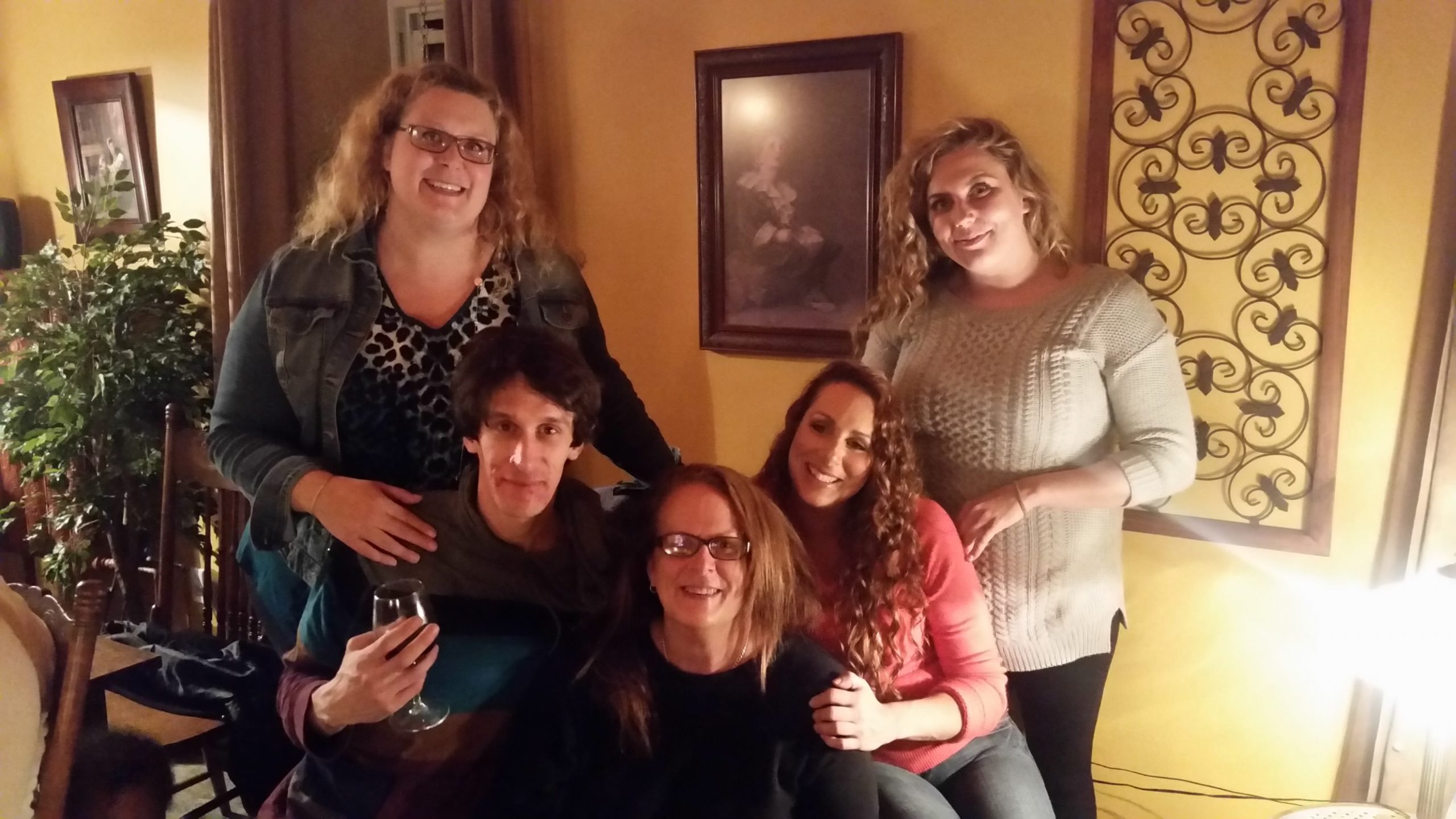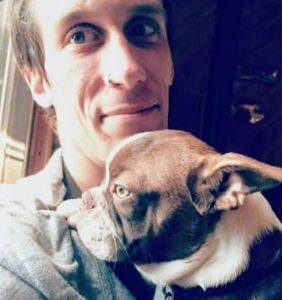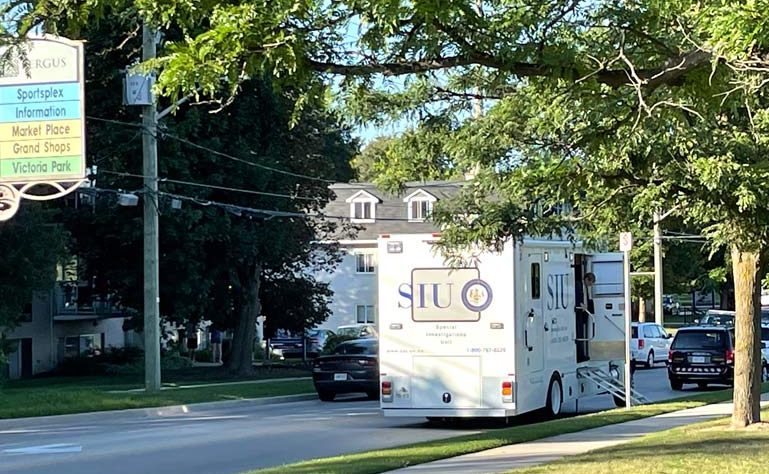MISSISSAUGA – Special Investigations Unit (SIU) director Joseph Martino has determined a Wellington OPP officer will not be facing criminal charges in the police shooting death of Mathias Bunyan, according to a Dec. 14 SIU press release.
The 31-year-old Fergus man was shot and killed by an OPP officer on Aug. 15 at his Belsyde Avenue apartment building after police were called there by a person concerned about Bunyan’s behaviour.
The SIU, an agency which investigates police-involved deaths, serious injury, discharge of a firearm at a person or allegations of sexual assault, invoked its mandate and opened an investigation into police actions the day of the shooting.
Aside from official SIU statements — which Bunyan’s three sisters have previously disputed in speaking with the Advertiser — the family has been left in the dark about what exactly transpired that August day.
Bunyan’s death occurred a mere 24 hours before the family, including the sisters, had planned on having an intervention for their brother, who they say was dealing with complex mental health issues that didn’t need to result in his death.
“I’m not going to be naive enough to say that there couldn’t be some things that we’re going to find out that may be very hurtful or [saddening] to us, but we do just want the truth,” Bunyan’s sister Rachel Labrie previously told the Advertiser.
A publicly available SIU report, dated Dec. 10, offers the first official account of what occurred Aug. 15.
Providing a glimpse into Bunyan’s final moments, it is based on eight civilian and six officer interviews conducted between Aug. 15 and Oct. 15, over an hour of body-worn camera footage, police radio transmissions, officer notes, ambulance call reports, preliminary autopsy reports and other evidence.
An individual identified in the SIU report as “CW #1” was filling in as a property manager on Aug. 15 for the Belsyde Apartment building where Bunyan lived.
At 11:12am, the individual called police after being contacted by a tenant concerned with “yelling and screaming” in an apartment.
Two additional calls from separate individuals came in to police, one at 11:18am and another at 11:20am, reporting “yelling and screaming” and “profanities and cursing.”
Wellington OPP officers were dispatched for a “domestic disturbance call in progress” at 11:13am. The report does not identify any of the officers involved by name and states Bunyan had previously been flagged on police records for violence.
Police previously received “several mental health calls” related to Bunyan on Nov. 29, according to the report, and that information was relayed to officers.
All was quiet when the two officers arrived at Bunyan’s apartment door at 11:23am. Thirteen minutes later, an officer reported seeing Bunyan for seconds before the door was slammed closed and locked.
Additional officers began responding to the building but the report doesn’t state when. At 12:16pm, police entered Bunyan’s apartment using bolt cutters. Bunyan was initially nowhere to be seen and later retreated to his bedroom closet where he hid.
A body-worn camera was turned on one minute after entry was made into Bunyan’s apartment and a minute after that, audio recording began. Audio recording was turned off between 12:24 and 12:25pm and for eight seconds at 12:30pm.
Police requested the OPP Emergency Response Team (ERT) and asked about negotiators but none were readily available. According to body-worn camera footage, as detailed in the report, Bunyan was perturbed and didn’t believe the people in his apartment were police.
Between 12:37 – when officers began trying to persuade Bunyan to surrender and that police were there to help him – and 1:15pm, Bunyan asked officers numerous times to leave. Officers asked Bunyan numerous times to come out from the closet.

Mathias Bunyan is seen in this photo submitted by his family. Bunyan’s life was cut short in a police shooting on Aug. 15 in Fergus. He was 31. From left are: Kimberley, Mathias Bunyan, Sandra Bunyan, Rachel Labrie and Alysha Bunyan. (Submitted photo)
According to the report, Bunyan said he wanted to commit suicide, and told the subject officer – the one who ultimately shot and killed Bunyan – that the officer would be the one to kill him.
Between 1:15 and 1:28pm, Bunyan refused to drop a knife he claimed he had, officers had firearms and a conducted energy weapon drawn, and pepper spray was twice sprayed into the closet where Bunyan remained.
At 1:29pm, Bunyan emerged from the closet bent forward, according to the report, before standing and charging at the subject officer with a knife in each hand. Nearby officers fired their conducted energy weapons to no avail. (Four probes were located, of which one was lodged in the bedroom wall.)
Martino stated in the report there was “no more than a metre” between Bunyan and the subject officer.
Four shots were fired “point-blank” by the subject officer and Bunyan fell backwards, landing on his side before trying to sit up. He crawled from the bedroom as officers yelled at him to show his hands, stay down and not move.
“On my assessment of the evidence, there are no reasonable grounds to believe that the [subject officer] committed a criminal offence in connection with [Bunyan’s] death,” Martino stated in the report.
Martino added that, in his view, the force used was justified and there could be “little doubt” that the officer was protecting himself when he shot Bunyan.
“On this record, caught in the tight confines of a small bedroom and with nowhere else to go, I accept that the [subject officer] acted reasonably to defend himself when he met the risk of a potentially deadly knife attack with a resort to lethal force of his own,” the director stated.
Although the SIU originally stated an OPP officer was taken to hospital with “serious injuries,” the Dec. 10 report stated paramedics described a “small laceration to the [subject officer’s] left bicep.”
The officer wasn’t transported to hospital by paramedics, but by another officer, and Martino did not make the determination that the laceration was caused by Bunyan.
The officer who shot and killed Bunyan declined to participate in the SIU’s investigation and refused to provide notes. He was never interviewed by SIU investigators.
Martino did point out officers could have waited for the ERT to arrive, but said “it was open for them to conclude that they could not afford to wait” the estimated 30 to 60 minutes for their arrival.
“As for the deployment of negotiators to the scene … they were an hour-and-a-half to two hours away,” Martino stated.

Mathias Bunyan is seen with Forest, one of his dogs. (Submitted photo)
Bunyan ultimately collapsed and died in his living room in a pool of his own blood. He was pronounced dead by paramedics at 1:47pm.
The SIU report concludes that Bunyan “died from gunshot wounds inflicted by an OPP officer.”
Nowhere in the report is there mention of the Waterloo Wellington Integrated Mobile Police and Crisis Team, a specialized mental health team which Bunyan’s family believes would have made a difference.
Now that Martino has delivered his decision stating there is “no basis for proceeding with criminal charges,” the SIU investigation is complete and the file closed.
Bunyan’s family retained a Toronto law firm earlier this year after raising $11,940, as of Dec. 14, through a GoFundMe campaign.
The Advertiser reached out to Bunyan’s family members for comment on Martino’s decision, but having previously spoken at length with the newspaper, the family elected to have their lawyers speak on their behalf.
A lawyer representing the family declined to comment for this story before press deadline, saying information would be forthcoming.



